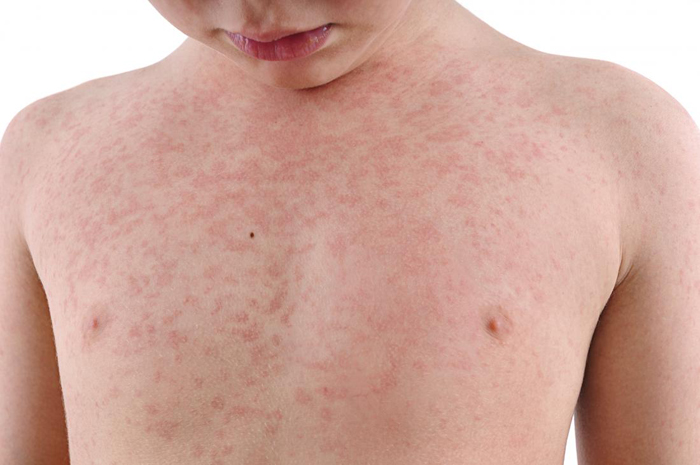
Sometimes rubella is known as German measles, but the word “German” in the name of this disease has nothing to do with the country. It comes from the Latin germanus, meaning “similar”, since rubella and measles share many symptoms.
Rubella is a common benign childhood infection manifested by a characteristic exanthem and lymphadenopathy. Rubella virus infecting a pregnant female, while causing a benign illness in the mother, may result in the congenital rubella syndrome with serious chronic fetal infection and malformation. Childhood immunization is highly effective at preventing infection.
Causes of Rubella
The disease is caused by a virus that is spread through the air or by close contact. It can also be transmitted to a fetus by a mother with an active infection, causing severe disease in the fetus. In children and adults, rubella is usually mild and may even go unnoticed.
Rubella is especially dangerous in women infected during the first few months of pregnancy because the virus can severely damage the fetus.
Symptoms of Rubella
Rubella is a mild illness which may present few or no symptoms. Symptoms may include a rash, slight fever, joint aches, headache, discomfort, runny nose and reddened eyes. The lymph nodes just behind the ears and at the back of the neck may swell, causing some soreness and/or pain. The rash, which may be itchy, first appears on the face and progresses from head to foot, lasting about three days. As many as half of all rubella cases occur without a rash.
Diagnosis
Clinical diagnosis; can be confirmed by serology.
Treatment
There is no specific treatment for rubella. The disease is usually mild and self-limiting. Rest, maintaining fluid intake and possibly paracetamol for fever, discomfort or joint pains is all that is usually required.
Prevention
Rubella is preventable by immunization. Previous rubella should be documented in young women; if antirubella antibody titers are negative, rubella immunization should be given.
References